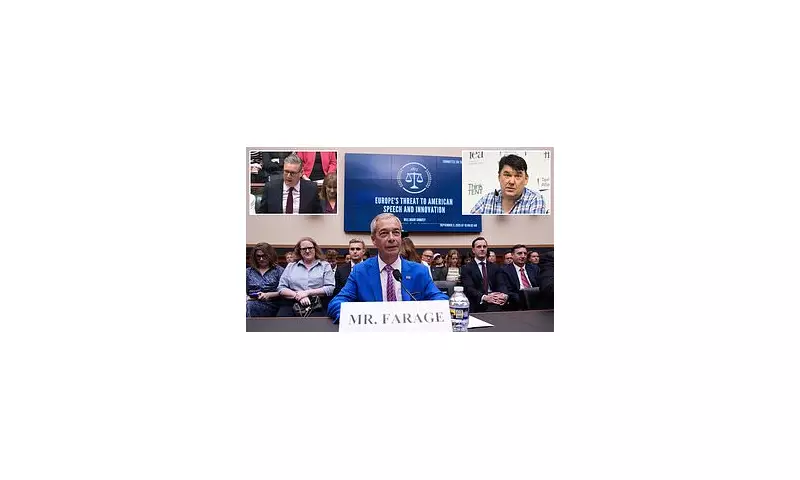
In a blistering monologue that has sent shockwaves through Westminster, political firebrand Nigel Farage has launched an extraordinary attack on Labour leader Sir Keir Starmer, branding him an "awful authoritarian" and issuing a grave warning about the future of free speech in Britain.
The GB News presenter and architect of Brexit didn't hold back during his regular show, delivering a scathing assessment of the man poised to become Britain's next Prime Minister. Farage's comments come amid growing concerns about freedom of expression in the UK.
The Authoritarian Accusation
Farage pulled no punches in his characterisation of Starmer, stating bluntly: "I think he is an awful authoritarian." This damning indictment forms the centrepiece of his broader critique of the Labour leader's approach to governance and civil liberties.
The controversial broadcaster suggested that Starmer's background as Director of Public Prosecutions has shaped an inherently authoritarian worldview that could threaten fundamental British freedoms if he assumes power.
Free Speech Under Threat
In perhaps his most alarming warning, Farage claimed that free speech in Britain is "hanging by a thread" and expressed grave concerns about its future under a Labour administration. His comments tap into ongoing debates about cancel culture, political correctness, and the boundaries of acceptable discourse in modern Britain.
Farage emphasised that the protection of free speech should be a cornerstone of British democracy, suggesting that this fundamental right faces unprecedented challenges from what he perceives as authoritarian tendencies within the political establishment.
Political Strategy or Principle?
While positioning himself as a defender of liberty, Farage also acknowledged the political opportunity his stance presents. He remarked that highlighting threats to free speech could prove to be a "good political strategy," indicating an awareness of the potent electoral appeal of civil liberties issues.
This approach allows him to position both himself and his political allies as champions of fundamental rights against what he characterises as an overreaching, censorious political class.
The Broader Context
Farage's outburst occurs against a backdrop of intense political scrutiny of Starmer's record and policies. The Labour leader, who served as Director of Public Prosecutions from 2008 to 2013, has faced previous criticism from civil liberties groups over certain policies, though his supporters vehemently reject characterisations of him as authoritarian.
The debate about free speech in the UK has intensified in recent years, with universities, social media companies, and public institutions all facing questions about their approach to controversial speakers and content.
As the next general election approaches, exchanges like Farage's broadside against Starmer are likely to become increasingly common, with civil liberties and freedom of expression emerging as potential battleground issues that could influence undecided voters.






